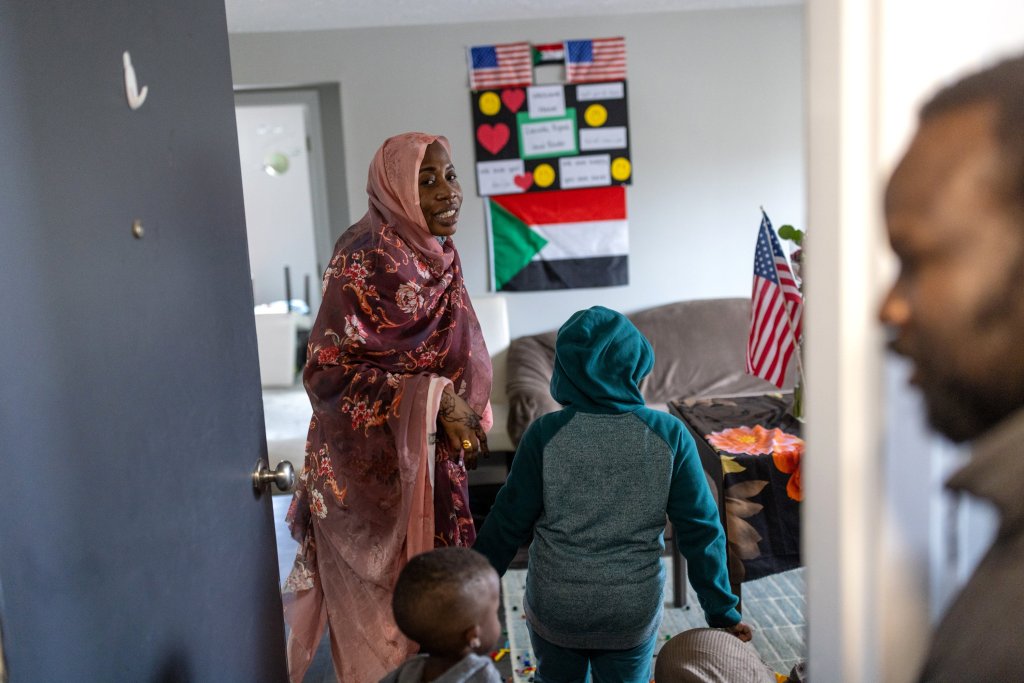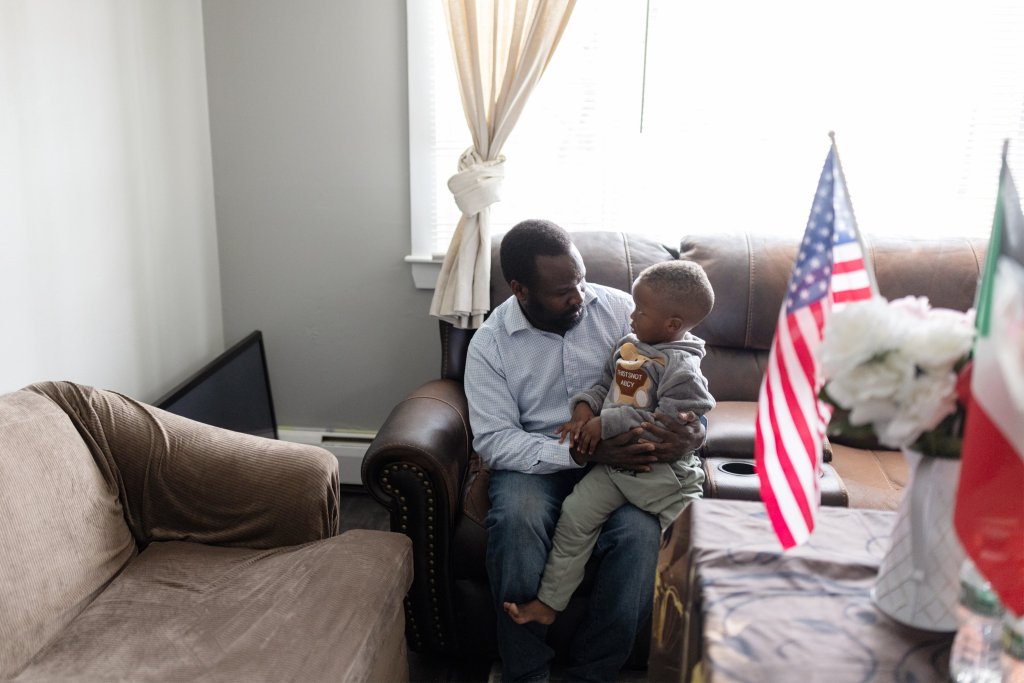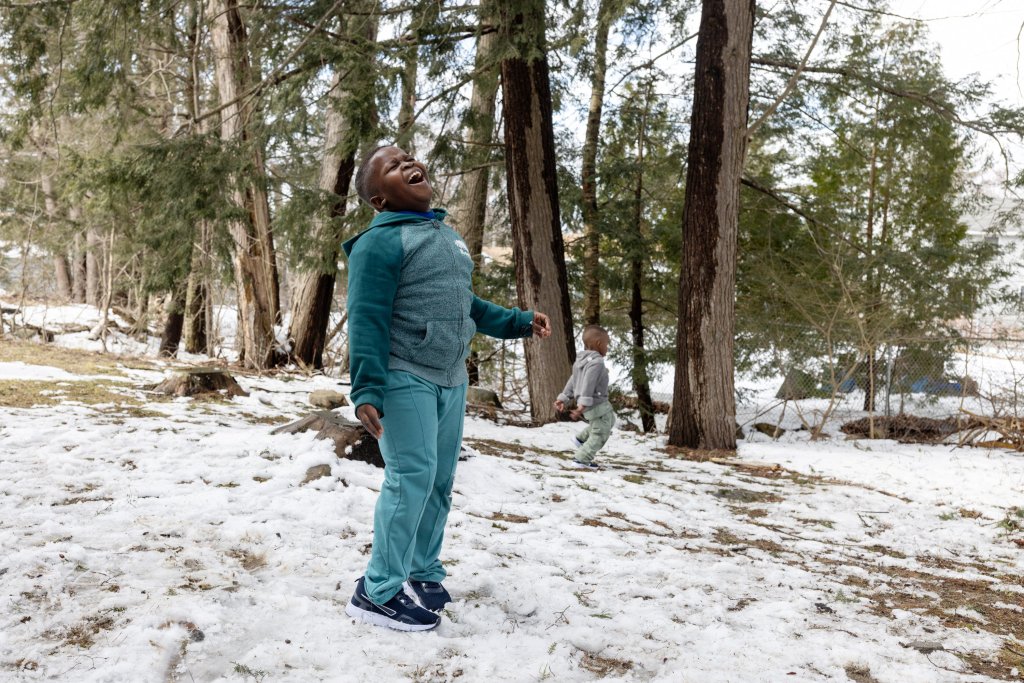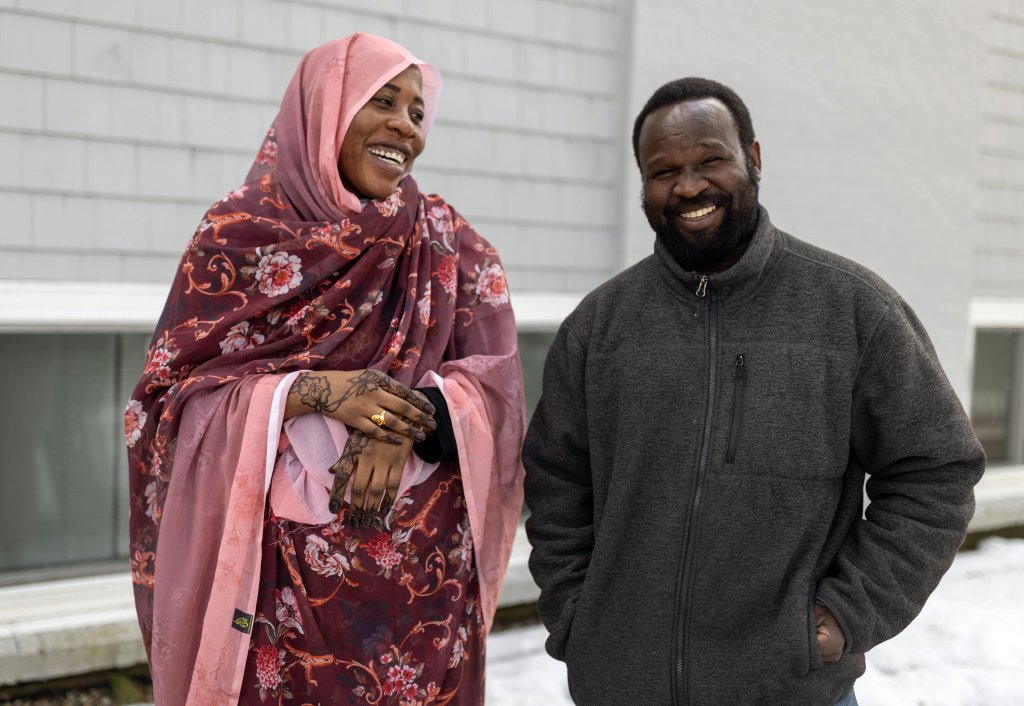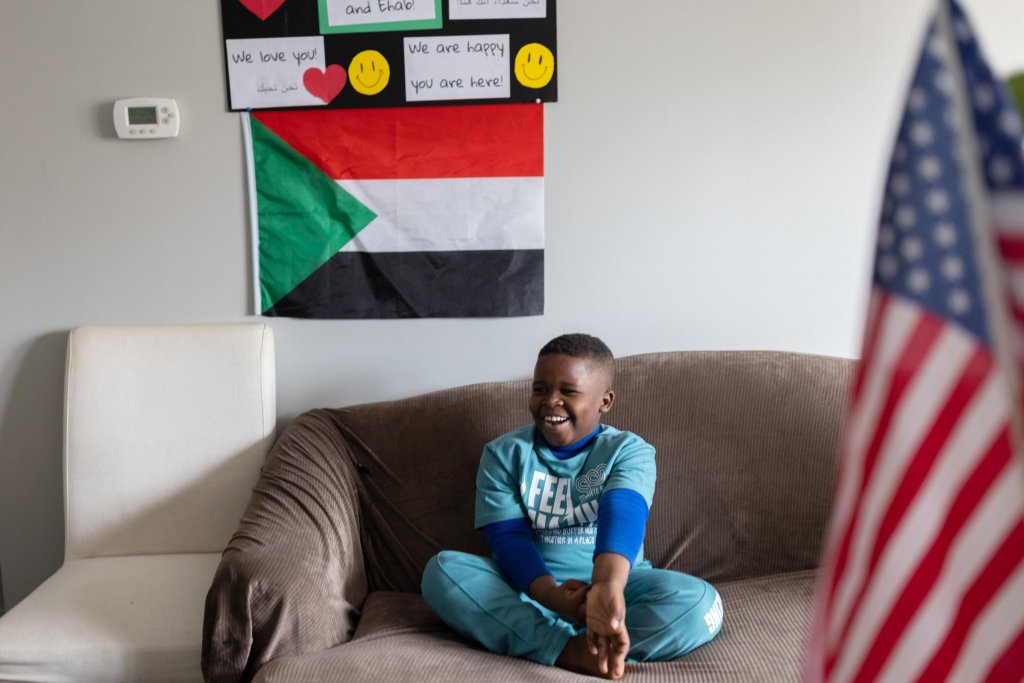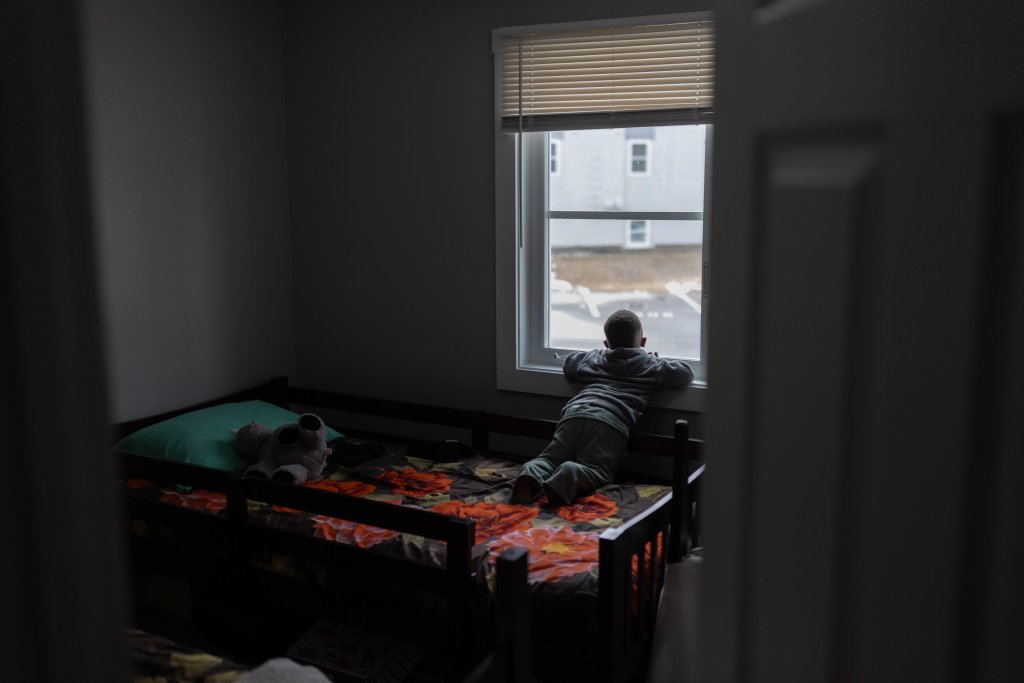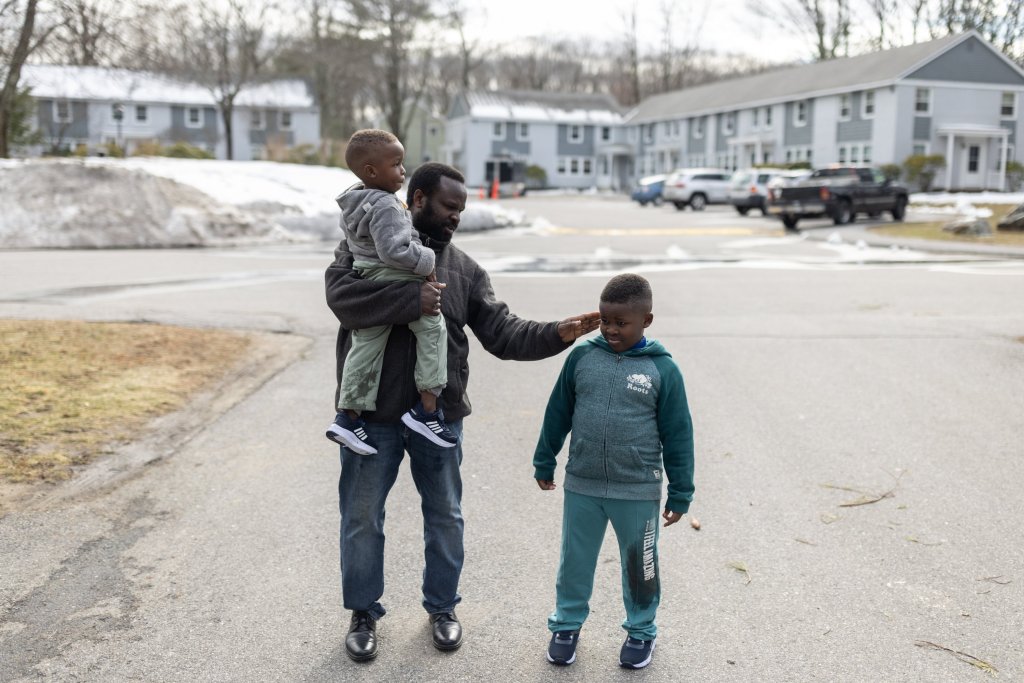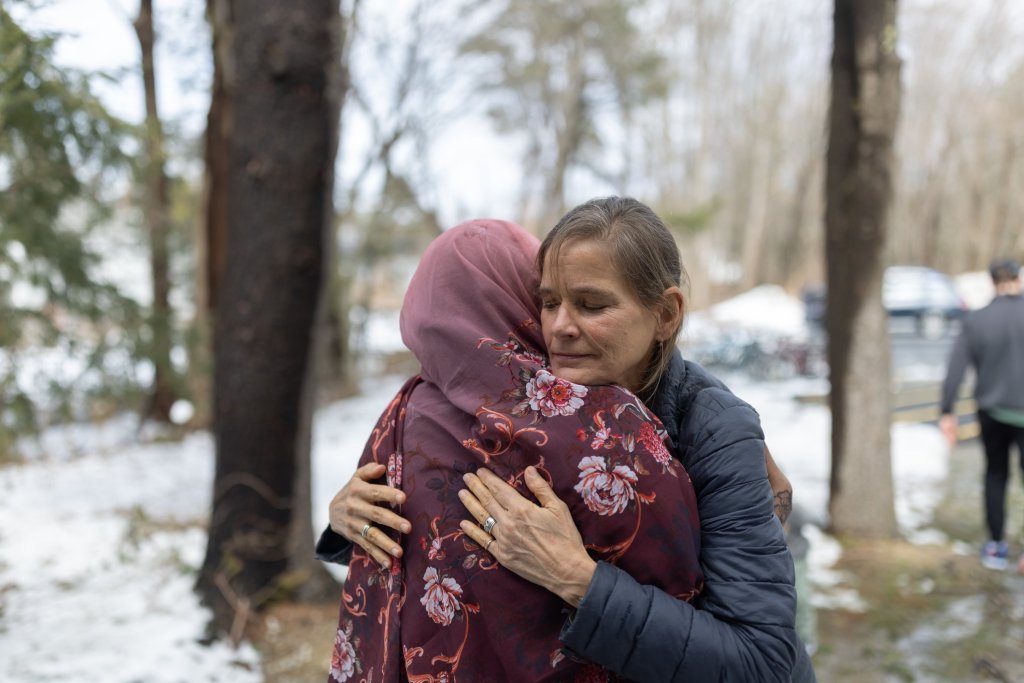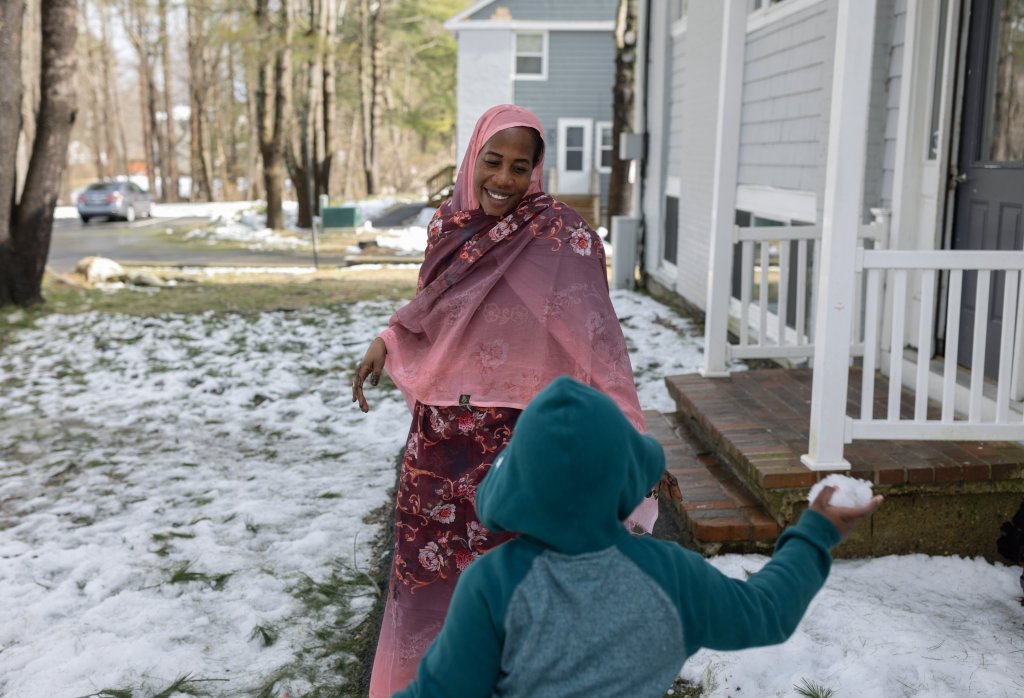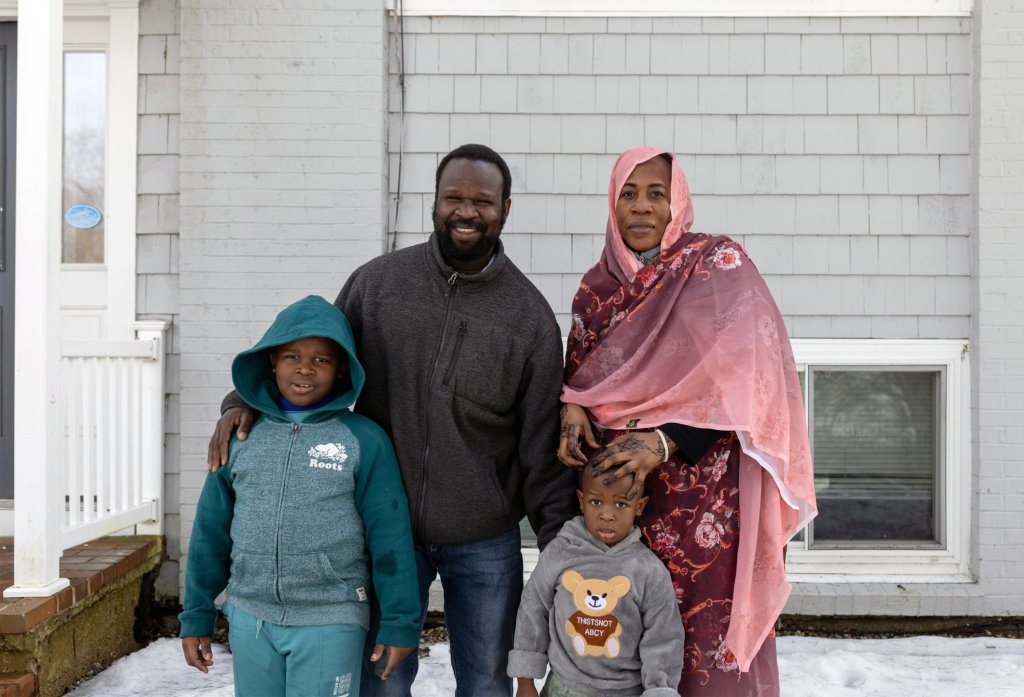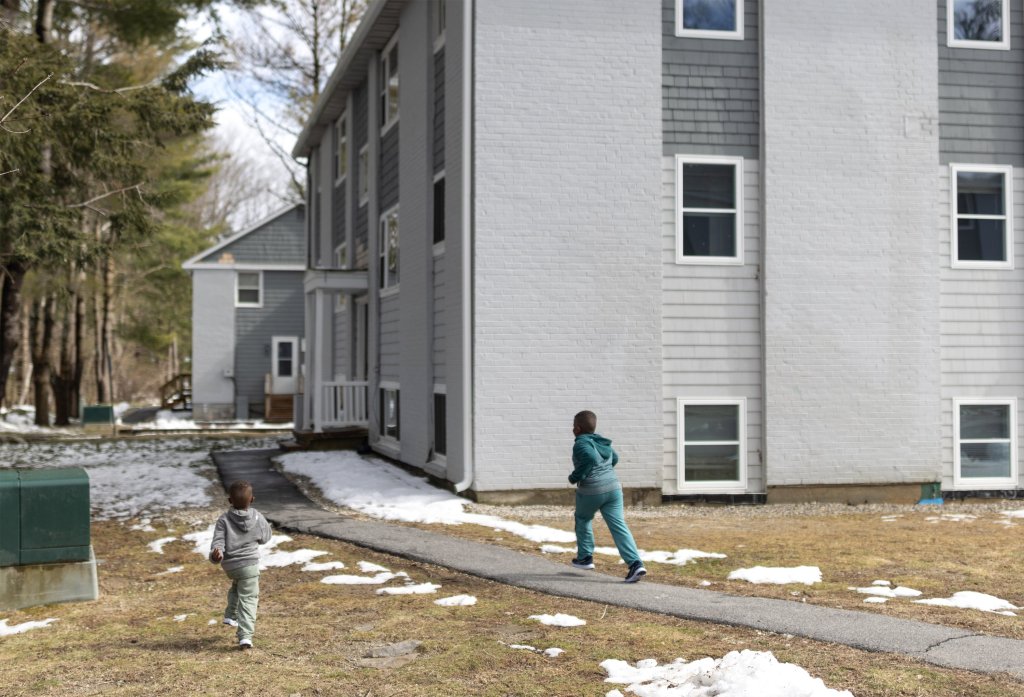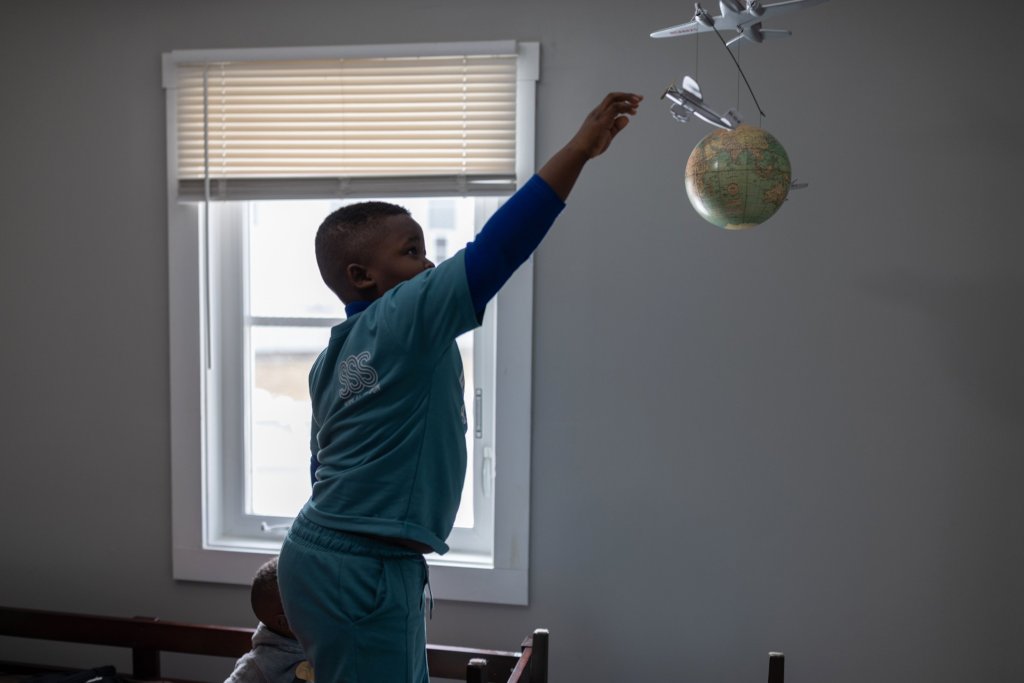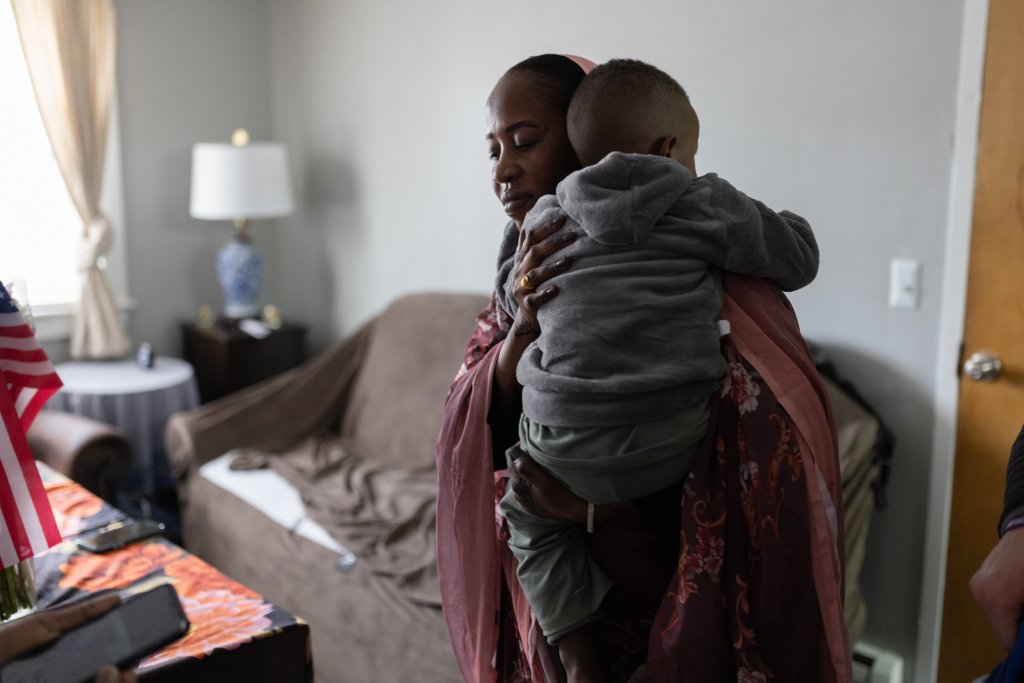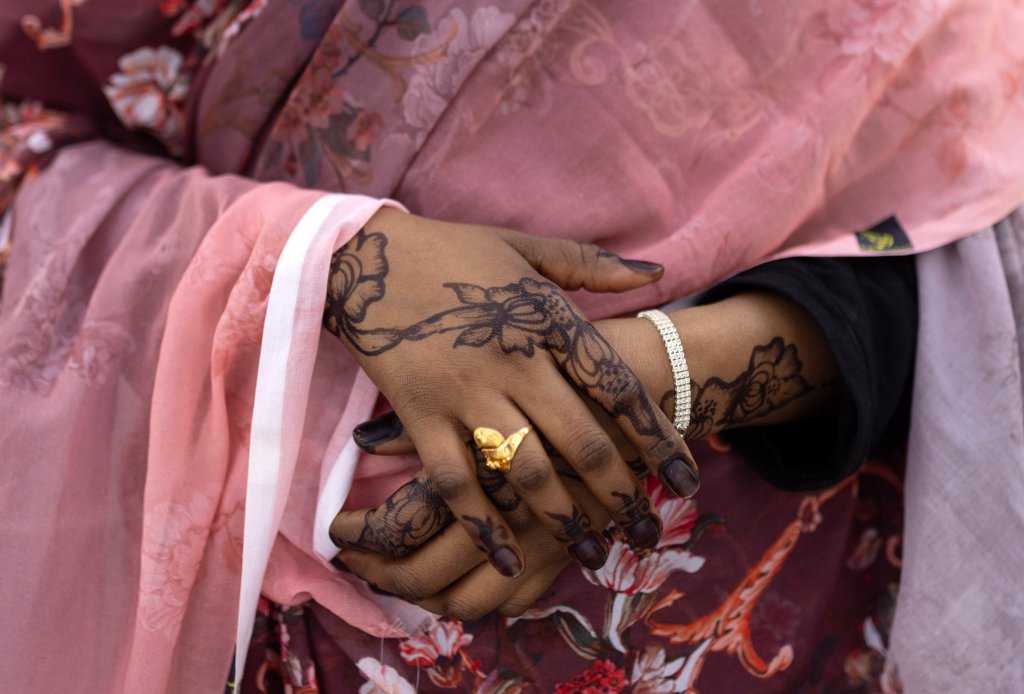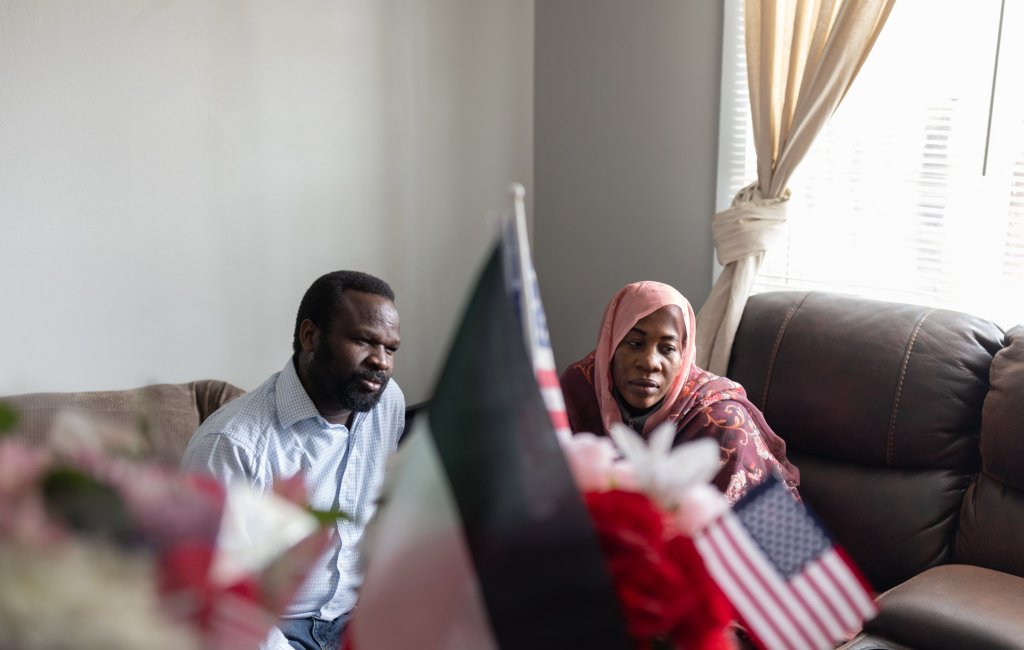For nearly a year, El-Fadel Arbab kept an apartment in Portland waiting for his wife and two sons, who fled the ongoing violent conflict in Sudan last May and were holed up in a hotel in Saudi Arabia.
A community activist and educator, Arbab, 40, worked three jobs to support two households at a monthly cost of $5,000, with help from Mainers who donated over $30,000 to his effort. Through it all, Arbab, who has lived in Maine for two decades, scaled one immigration hurdle after another to bring his family here. He and his wife have not lived under the same roof, or on the same continent, since they married in 2014.
This week, Arbab’s usually silent two-bedroom apartment was filled with squeals of joy – and piles of Legos – when he finally brought his wife and sons home.
“Do you hear that?” Arbab asks, beaming as he welcomes visitors. “It’s a huge difference. It used to be so quiet.”
Furnishing the squeals is 3-year-old Ehab, overseen by his older brother, Eyad, 7. They arrived Tuesday evening at Boston Logan International Airport with their mother, Zienab Salih Abaker, 34, ending a 15-hour journey from Riyadh, the capital of Saudi Arabia.
She is dressed formally for Ramadan and for her homecoming, wearing a coordinated peach-colored dress and hijab. Henna floral tattoos adorn her hands and feet, freshly applied in Riyadh before her departure.
“I did it special for him,” she says. “I’m so happy to be here.”

Eyad, 7, laughs after throwing a chunk of snow into the air while playing with his brother, Ehab, 3, outside their apartment in Portland. Eyad was incredibly excited to play in snow for the first time. Brianna Soukup/Staff Photographer
Last April, Arbab’s family was caught between warring factions in Khartoum, the capital of Sudan, where a violent power struggle between two top generals devolved into a massive humanitarian crisis. Nearly 11 million Sudanese people have been displaced since then, according to the International Organization for Migration.
Because Arbab and his sons are U.S. citizens, American military personnel evacuated his family from Khartoum to Saudi Arabia on May 2. They were among 300 people who were transported via high-speed Navy catamaran 180 miles across the Red Sea, from the Port of Sudan to the Port of Jeddah, according to U.S. military sources.
Married overseas 10 years ago, Arbab has been striving to bring his family to Portland since 2020, he says. His wife is not a U.S. citizen, so she needed a travel visa, which he applied for in July 2022. He expected it to be issued last May, but it was merely approved. With all the necessary paperwork submitted, he waited.
Despite repeated efforts by U.S. Rep. Chellie Pingree’s staff, Arbab’s attempts to secure an interview with immigration officials in Saudi Arabia were fruitless. Then a Maine resident with a connection at the U.S. Embassy in Riyadh reached out on Arbab’s behalf. Almost immediately his wife got the interview she was waiting for and her visa was issued.
“Zienab is the first of the people who were evacuated to make it out of Saudi Arabia,” Arbab says. “There are more than a dozen Sudanese families in Maine still waiting for family members in Saudi Arabia.”
TWO DECADES IN MAINE
Arbab came to Maine in 2004 as a survivor of the genocide in Darfur, the western region of Sudan where Arab militia members known as Janjaweed destroyed over 400 villages. More than 200,000 people died and 2 million were displaced.
He joined an older brother in Portland, which is home to about 2,000 Mainers who have ties to Sudan, a country of 45 million people in northeast Africa that is one of the poorest places on earth, regularly plagued by drought, famine and war, and reliant on foreign aid.
From the same community in Darfur, Arbab and his wife were wed in a marriage arranged by their families in Sudan. He returned in 2015 for the honeymoon. He has consistently worked three jobs in Portland – two as a delivery driver and one in the kitchen at Bayside Bowl – to support his family overseas and eventually bring them to Maine.

Arbab holds his youngest son, Ehab, 3, on his first full day in Maine. Brianna Soukup/Staff Photographer
He also volunteers widely and has spoken in schools across the U.S., sharing his experience with the genocide. He explains how his family members scattered as they fled Darfur and he was left alone at age 12 to find shelter and survive. He describes his harrowing journey from a refugee camp in Egypt to Portland.
He has been recognized for his community involvement, winning awards from Peace Action Maine and other organizations. That’s how he met Holly MacEwan, who recently retired as the service learning coordinator in Falmouth public schools.
Arbab credits MacEwan and Ryan Zamer, a senior at Falmouth High School, with supporting him through the paperwork and politics of the immigration system and setting up the online GoFundMe campaign that helped to bring his family to Maine. MacEwan and Zamer accompanied Arbab to Logan to pick up his family.
“I want to express my gratitude to them and everyone who contributed in one way or another,” Arbab says. “Even working three jobs, it wouldn’t have been enough. They changed my life forever. We have become family.”
FILLING THE NEST
After his wife and sons left Sudan, Arbab scrambled to prepare a home for his family in Portland, thinking they would arrive within a few weeks. He had been living with a friend and his family in Portland. By mid-May, Arbab had rented the two-bedroom apartment and filled it with furniture and other household items, most of them donated.
Before his family arrived, Arbab slept on the floor beside the queen-size bed he planned to share with his wife, or one of the twin beds in the boys’ room. Tuesday night they slept soundly together as a family in their new home.
“I woke up and saw the room was different and knew I was finally here,” Abaker says.
While in Riyadh, Arbab’s family rarely went outside for fear they would be arrested and sent back to Sudan. Twice on Wednesday, the boys asked their parents to go outside and play in the snow, something they had only seen in movies before.
“I’m happy to see the kids running around and playing,” Abaker says, watching the boys climb the crusty snowbanks and toss handfuls of snow.
Before the family left Saudi Arabia this week, Eyad phoned his father to say he hoped to see the snow before it melted.

El-Fadel Arbab and his wife, Zienab Salih Abaker laugh together outside their Portland apartment. Arbab has been trying for years to bring his wife and sons to the United States. Brianna Soukup/Staff Photographer
“It’s good here,” Eyad says through his father. “I’m able to play and I’m happy.”
Arbab calls his boys by nicknames as they play together outdoors. Like many Sudanese families, Arbab and his wife have chosen meaningful nicknames for their children. Eyad, the oldest, is Teaboh, the center beam of a house, and Ehab is Tobah, one of the four corner posts.
They are words that signify the strong foundation of a family, Arbab says. If they have a daughter, she will have a similar nickname.
The Sudanese community has welcomed Arbab’s family, gathering each night at their apartment. Abaker’s younger sister, who lives in Westbrook and works at Abbott Labs in Scarborough, greeted them Tuesday night with her husband and two children. Abaker is happy to have family nearby to help her acclimate to a new country.

El-Fadel Arbab with his sons Ehab, 3, and Eyad, 7. Arbab first came to Maine in 2004 as a survivor of the genocide in Darfur, Sudan. He married overseas 10 years ago. Brianna Soukup/Staff Photographer
AN AMERICAN DREAM
“It’s good for me and good for her,” she says.
Wednesday evening, after breaking their daily fast for Ramadan, Arbab planned to make himself scarce so his wife could host a ladies’ night with several women from the Sudanese community. He wants to host a community party later this spring to recognize friends and donors who supported his family through the last year.
“It was a long process to get them here in front of me,” Arbab says. “Now they are here and they are playing and I am happy. It has motivated me to keep moving forward.”
Looking ahead, the family plans to enroll Eyad at Lyseth Elementary School and they already anticipate saving for college. Abaker says she is eager to take language lessons to improve her English. She also wants to get her driver’s license as soon as possible and get a job.
They are a team, Arbab says, and they have goals:
“We want to buy a house and have the American dream.”
Copy the Story LinkComments are not available on this story.
Send questions/comments to the editors.

